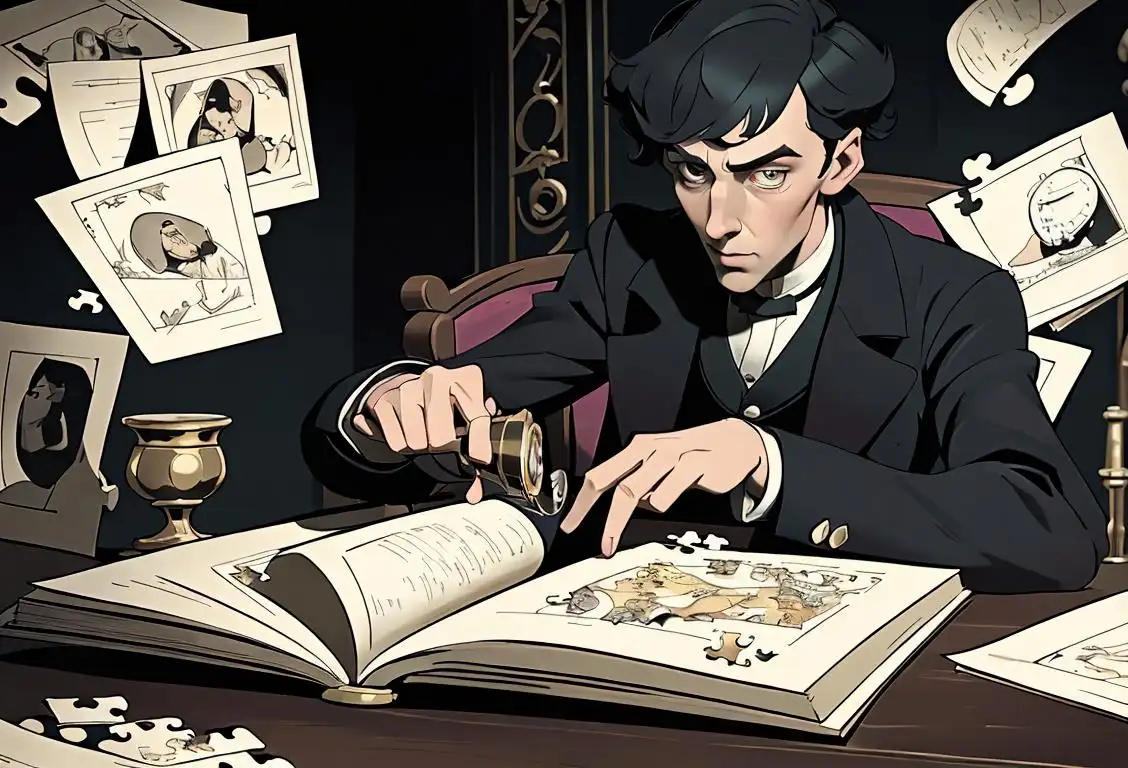National Riddle Day

Hey there riddle master! Are you ready to sharpen your wits? Because it's National Riddle Day! Get your thinking caps on and let's dive into the captivating world of riddles.
When is Riddle Day?
It's national riddle day on the 3rd September.
Unraveling the Intricacies of National Riddle Day
On this delightful occasion of National Riddle Day, we celebrate the art of teasing and tickling our brains with mind-bending questions. Riddles have fascinated humankind for centuries, challenging our intellect and bringing out the puzzler within us all. Whether you enjoy riddles as a hobby or use them to entertain others, this special day is dedicated to the timeless craft.
The origins of National Riddle Day remain somewhat elusive, hidden away like the answer to a well-crafted riddle. But one thing's for certain - riddles have been part of our cultural tapestry since ancient times.
The Ancient Origins
Ancient civilizations like the Egyptians, Greeks, and Romans were all fond of riddles. It was even believed that riddle-solving could help in the development of wisdom and critical thinking skills. In fact, the famous Sphinx riddle in Greek mythology posed a challenge to anyone who wished to enter the city of Thebes. Those who failed to solve it were met with a not-so-friendly fate. Yikes!
The Riddle Renaissance
The popularity of riddles experienced a resurgence during the Middle Ages, with riddle books becoming widespread across Europe. The clever wordplay and thought-provoking nature of riddles made them a hit among both the young and old. Imagine a knight in shining armor pondering over a riddle while riding into battle - that's the kind of magic riddles can bring to life!
The Internet Age and Riddles
With the advent of the internet, riddles found a new home in the digital realm. Online forums, social media, and dedicated websites became hubs for riddle enthusiasts to come together, share, and solve riddles from around the world. It's like a global brain-teaser party that never ends!
Riddle enthusiasts have taken advantage of the online world to create communities where they can challenge fellow puzzlers and showcase their own riddles. It's a platform that celebrates the creativity and intelligence of riddle-makers and solvers alike.
So, whether you're a seasoned riddler or a curious novice, National Riddle Day gives you the perfect excuse to indulge in the world of brain teasers. Challenge your friends, family, or even that friendly neighborhood squirrel to a riddle-off. It's a day to celebrate the power of the mind and the joy of a well-crafted riddle.
History behind the term 'Riddle'
800 AD
The Anglo-Saxon Beginnings
The term 'riddle' finds its origins in the Anglo-Saxon period, around 800 AD. During this time, riddles were used as a form of entertainment and intellectual challenge. Riddles were essentially enigmatic questions, often posed as poems, that contained a hidden meaning or a clever play on words. They encouraged participants to think creatively and critically to solve the puzzle.
10th Century
Riddles in Exeter Book
In the 10th century, a collection of over 90 riddles known as the 'Exeter Book' was compiled. The Exeter Book is the largest surviving manuscript of Old English literature, and it contains a wide range of riddles covering various topics including nature, animals, objects, and more. This compilation played a pivotal role in shaping the development and popularity of riddles during the Middle Ages.
14th Century
Riddles and the Canterbury Tales
During the 14th century, the famous English writer Geoffrey Chaucer included a number of riddles in his masterpiece, 'The Canterbury Tales.' Chaucer's riddles showcased his wit and skill in wordplay, adding an element of entertainment to his work. These riddles contributed to the growing fascination for this form of intellectual amusement.
20th Century
Riddles in Modern Culture
Riddles have continued to captivate people throughout history, and they have found their place in modern culture as well. They have become a popular form of entertainment in books, magazines, and puzzle games. Additionally, riddles have been featured in movies, TV shows, and even online platforms, keeping the tradition alive and connecting people across different generations.
Did you know?
Did you know that the famous riddle 'What has a heart that doesn’t beat?' has an adorable answer? A deck of cards! Those sneaky riddles, always keeping us on our toes!Tagged
awareness funFirst identified
3rd September 2017Most mentioned on
3rd September 2017Total mentions
34Other days
Nurses Day
Former Prisoner Of War Recognition Day
Press Day
Handloom Day
Heroes Day
Memorial Day
Dance Day
Bestfriends Day
Liberation Day
Love Your Pet Day









